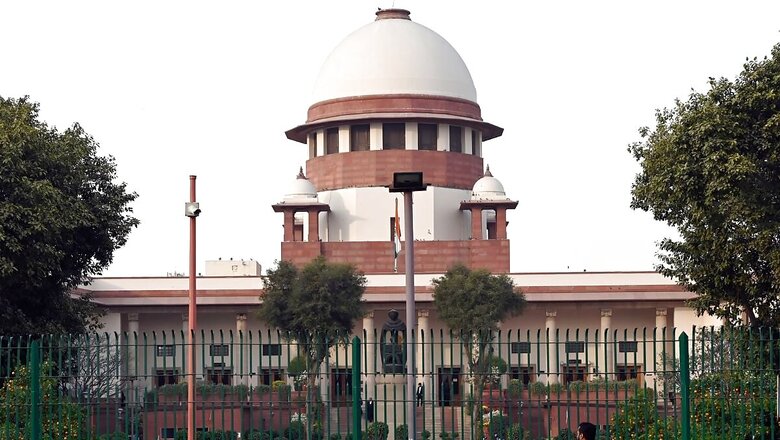
views
The Supreme Court has said when a court concludes that an accused is entitled to be enlarged on bail pending trial, then granting the relief only for a limited duration is “illegal” and such orders violate the right to liberty. The apex court, which was hearing a plea filed by a man facing prosecution for alleged offences under the Narcotic Drugs and Psychotropic Substances (NDPS) Act, 1985, said such orders put an additional burden on the litigant as he was forced to file a fresh bail application for extension of the relief granted earlier.
“When a court concludes that the accused is entitled to be enlarged on bail pending trial, granting bail only for a limited duration is illegal. Such orders violate the right to liberty under Article 21 of the Constitution of India,” a bench of Justices Abhay S Oka and Pankaj Mithal said in its order passed on November 29. The man had filed the petition challenging an order of the Orissa High Court.
The top court noted that perusal of the high court order showed the judge had concluded that the appellant was entitled to be enlarged on bail. However, he was granted interim bail for 45 days, the bench said.
“In short, the high court was of the view that prolonged incarceration with no prospect of the trial coming to an end makes a case for the grant of bail,” it added. After recording the tentative findings, the high court had granted him bail only for 45 days, describing it as interim bail, the bench said.
“But after granting the interim bail, as mentioned in the last paragraph of the impugned order, the judge has finally disposed of the bail application. If an order granting interim bail was to be passed, the bail application should have been kept pending,” it said. The bench further said, “We may note here that this is the fifth or sixth order which we came across from the same high court where, after recording a finding that an accused was entitled to be enlarged on bail, the high court has chosen to grant either interim bail or bail for a short duration.” While allowing the appeal, the bench modified the high court order and directed that the appellant shall be enlarged on bail until the final disposal of the case.




















Comments
0 comment